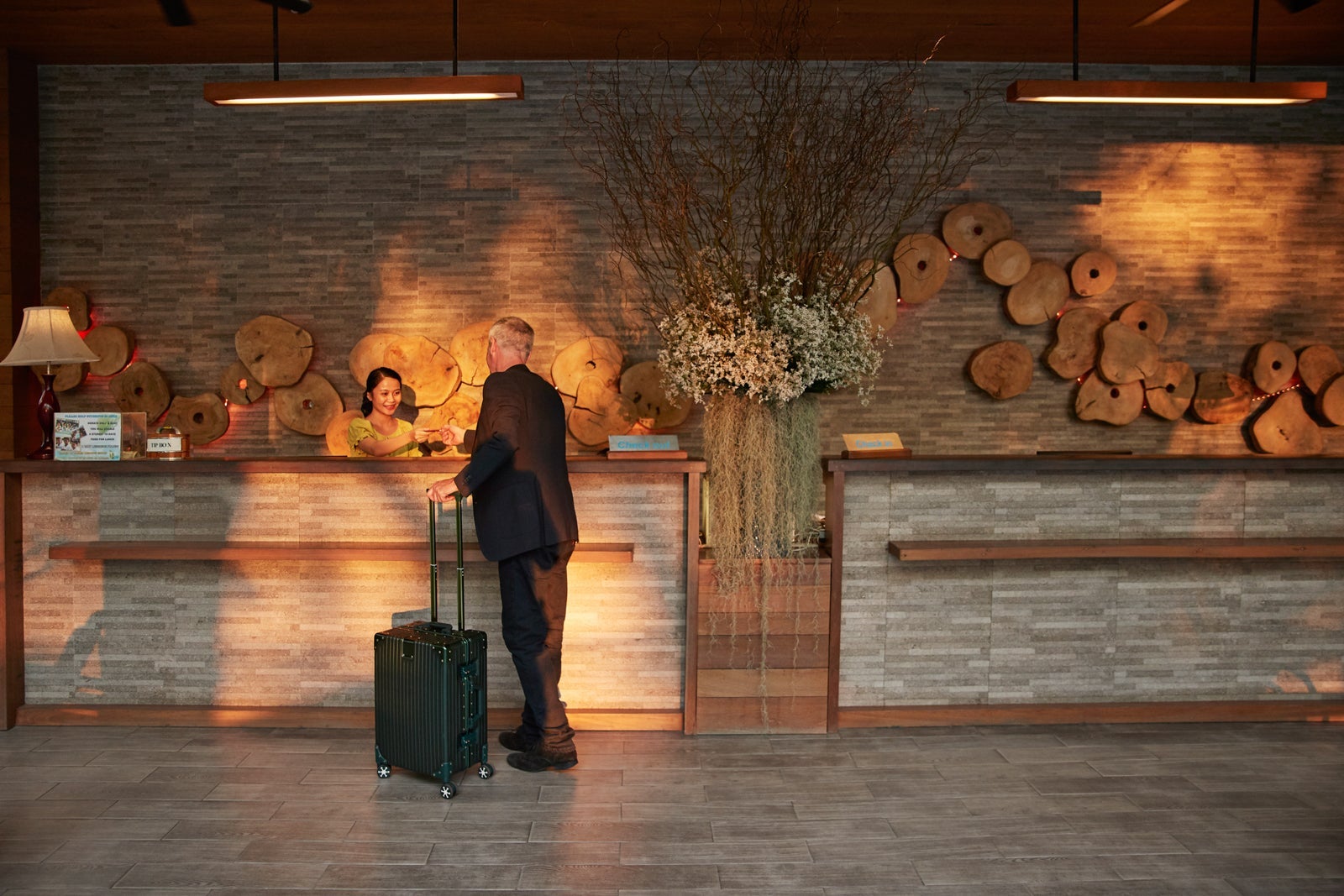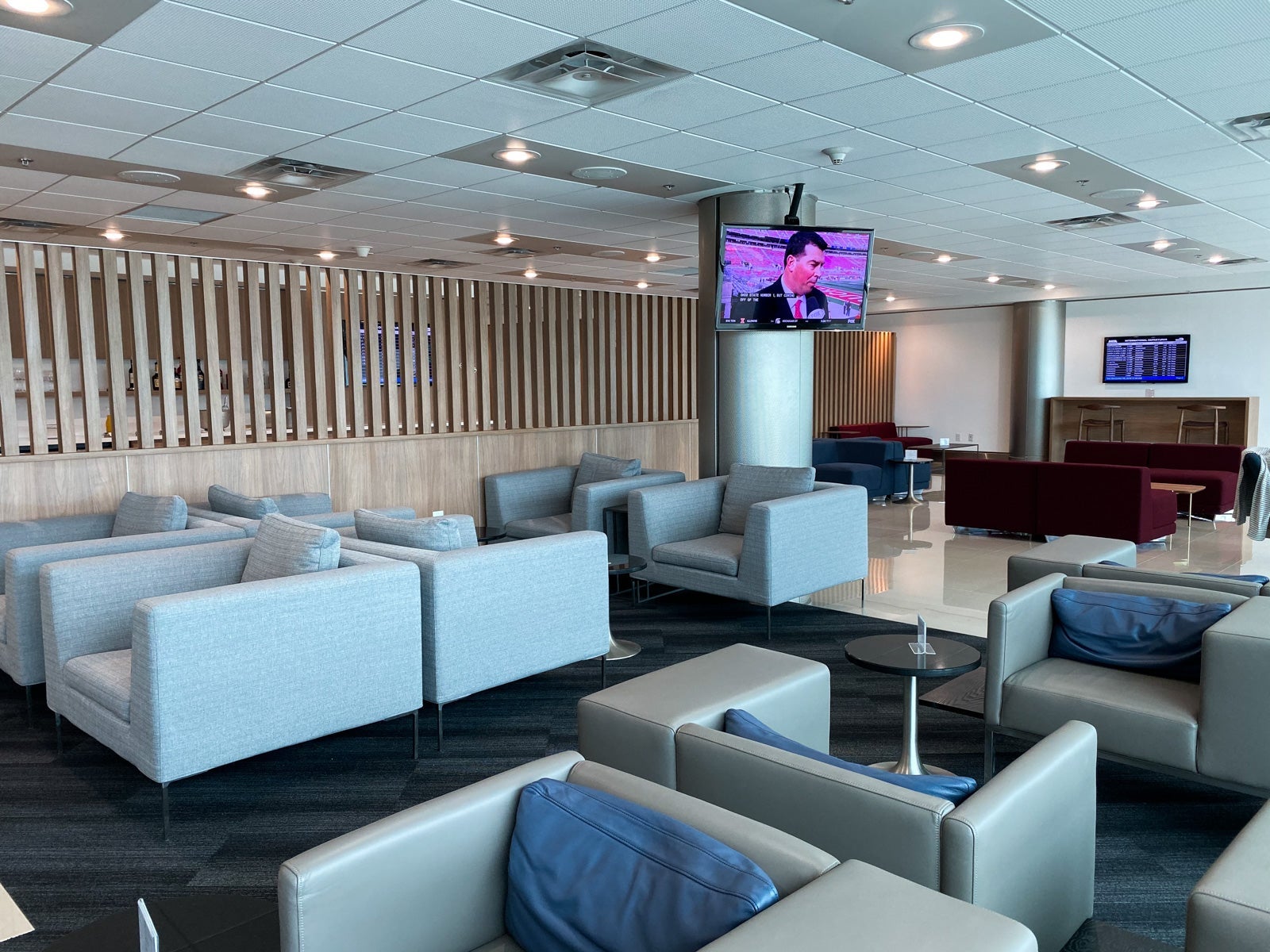5 key points and miles strategies I learned as a management consultant 'road warrior'
Just after graduating school, I joined a Big Corporate Consulting Company, quickly becoming the prototypical "road warrior" traveling every week to client sites around the country and the world.
With four to five days each week of hotels, rental cars, restaurants and last-minute flights — all covered by a fat corporate expense account, I became quite the newbie points connoisseur, accumulating vast amounts of points, status and benefits. While the job and the infinite expense budget are long gone (and thankfully so are all those conference rooms), I still use my on-the-job points and miles knowledge.
For more TPG news delivered each morning to your inbox, sign up for the TPG daily newsletter.
[table-of-contents /]
Points learnings from the consulting lifestyle
Some quirks of my old job are unique to consulting. All costs were simply passed on to the clients, who hardly noticed. Since they were paying up to $600 an hour for staffing, the airline upgrades, $400-a-night hotels and $100-per-person dinners hardly made a blip on the radar.
When I first started, corporate policy dictated hotels could be expensed, and staff would get an additional per-diem for food and other expenses while traveling, maybe $75 a day. Still trying to pay off school loans, I'd pocket the cash and eat as frugally as possible. The cleaning staff at the (then) $400-per-night Ritz Carlton in San Francisco probably wondered about the guest whose room was littered with instant oatmeal packets and ramen containers. On the flip side, when working for a U.S. government client, our staff had to use cheaper, approved hotels — but strangely had no restrictions on meal costs. So, I collected plenty of credit card dining bonuses as our team hit every high-end restaurant in San Diego's Gaslamp Quarter nightly for months.

Eventually, the constant work travel began to wear me down, and despite all the points, status and lavish lifestyle benefits, I quit the job. How, I wondered, could I continue to enjoy the fun parts of travel without the grind of sitting in soul-sucking conference rooms working on spreadsheets every day? Hmmm, become a travel writer, perhaps?
Even after several career changes, I've maintained many of the same points and miles strategies I developed when I was a management consultant spending 80% of my life on the road. I've discovered you can still get great rewards, benefits and status even if you don't have a company expense account (though that certainly helps). My five guidelines below can be a cornerstone of a points strategy equally relevant to corporate road warriors and occasional leisure travelers.
Follow the deals
As in blackjack, the best payoffs for points and miles come when you're able to double down. Even as a busy, full-time traveler, I'd always take the time to scan the points partner websites, read every promotional email and look at the mailed fliers and inserts in my billing statements. I even had a guy on my work team keeping a spreadsheet on points deals and values — making me a points guy before The Points Guy (if only we had known then).

If I saw a hotel chain had a bonus, I'd stay there the following week. Every bonus enrollment offer I saw, I'd click on it. Such a strategy can be rewarded with rapid bumps for increased status, a barrage of free nights and mileage rewards far exceeding your actual travels. If you're not signing up for these deals, I think you're missing out on at least half the benefits of points and miles programs — it's like not doubling down on a 10 when the blackjack dealer has a six showing.

Membership has privileges
Fresh out of school, I had no special aspirations to become a fancy-pants member of the country club set and was willing to tough it out on any sort of travel. After all, I had backpacked the world, riding third-class rail cars and ramshackle public buses in rough conditions — what do I need with Economy Plus? However, after a couple months of non-stop business travel I discovered airport lounges are nice. Upgrades are nice. Hotel club floors and lounges are quite nice. And on a project like the one where I would take red-eye flights to China for meetings at a factory site the next day, some of these perks were essential to keeping my sanity. I worked hard to reach and maintain my 100K airline status and Platinum hotel status across multiple brands, because those upgrades not only made my life easier, it made my life livable.
Adjust your points programs to fit your lifestyle
When I was assigned to a year-long consulting project in the western U.S., I was a loyal, borderline fanatic, Southwest Airlines customer. Its many flights and change flexibility were essential for my job, and I really did appreciate its customer service. I was taking sometimes four flights a week on Southwest. I knew many of the flight crews, I'd heard all their corny flight-prep jokes and I had so many booklets of free drink coupons, I could (and did) treat entire planeloads of passengers to drinks. I was ultra A-list status, had the Companion Pass, the Southwest credit card and probably should have been given stock in the company.
Then I began a consulting project where I was going to be flying from San Francisco to Atlanta on a weekly basis. Yes, it was possible to continue using Southwest, but given the lack of direct flights, it didn't make sense. I was able to get Delta to match my 100K status I still had on United (from my prior year's regular China flights), applied for a Delta credit card, stayed in Delta partner hotels and raked in the bonuses.
When considering your choice of airline, credit cards and hotel programs, it's a good idea to look ahead for your coming year and modify your strategy accordingly. How much are you really going to travel, and to where? Does your favored airline have the best options to get to your chosen location? Then, choose (or change) your programs to match the situation. For example, during the height of the pandemic travel restrictions, I canceled all my airline, hotel and travel-focused cards and basically just kept my Amazon card for online shopping and a gas card for road trips to go camping. Now that air travel is on again, I'm saying hello to new sign-up bonuses.
Always pick up the tab
At my consulting project dinners, rental car counters and group events, it was always a battle over who got to use their card to pick up the hefty tab. A single event would be enough to make many cards' bonus spending thresholds, and we could just expense it and reap the rewards.

Obviously this is easier to do if you have a rich expense account, but even on your own, you can still pay for group dinners, rentals or events, have other folks there repay you with cash or Venmo, and get the points benefits. People might even think you're doing them a favor. Note: this strategy does require you to do some quick math calculations, which I've discovered I'm not necessarily good at after an extended dinner and drinks.
Set limits on chasing points
As a full-time points junkie, I would sometimes push the limits of logic to maximize my points and status. I ended up in situations where I was taking three-connection, 12-hour flights (instead of a direct three-hour flight) to fly my preferred airline and booking a stay an hour away from my work location to get a hotel bonus.
As a result, my work, sleep and my boss's patience began to suffer. I had an absurd number of credit cards and would spend way too much time trying to figure out which ones to cancel before I had to pay membership dues, or simply forget and pay hundreds of dollars for cards I didn't need.
Now, occasionally, I try to step back and evaluate if the time and effort I'm spending to get points or status actually match the rewards I might receive. If they don't, it's time to cut back.
Bottom line
Traveling non-stop as a corporate consultant taught me valuable lessons on accumulating points and status — and the benefits of having both of them.
Nowadays, whether I'm traveling a lot or staying more local, I try to apply these strategies by being more mindful of how to leverage the right cards and the right programs at the right time. It's hard to resist a good sign-up bonus, but I've become more selective on how to modify my points strategy to fit my lifestyle, not the other way around.
TPG featured card
at Capital One's secure site
Terms & restrictions apply. See rates & fees.
| 5X miles | Earn 5X miles on hotels, vacation rentals and rental cars booked through Capital One Travel |
| 2X miles | Earn unlimited 2X miles on every purchase, every day |
Pros
- Stellar welcome offer of 75,000 miles after spending $4,000 on purchases in the first three months from account opening. Plus, a $250 Capital One Travel credit to use in your first cardholder year upon account opening.
- You'll earn 2 miles per dollar on every purchase, which means you won't have to worry about memorizing bonus categories
- Rewards are versatile and can be redeemed for a statement credit or transferred to Capital One’s transfer partners
Cons
- Highest bonus-earning categories only on travel booked via Capital One Travel
- LIMITED-TIME OFFER: Enjoy $250 to use on Capital One Travel in your first cardholder year, plus earn 75,000 bonus miles once you spend $4,000 on purchases within the first 3 months from account opening - that’s equal to $1,000 in travel
- Earn unlimited 2X miles on every purchase, every day
- Earn 5X miles on hotels, vacation rentals and rental cars booked through Capital One Travel
- Miles won't expire for the life of the account and there's no limit to how many you can earn
- Receive up to a $120 credit for Global Entry or TSA PreCheck®
- Use your miles to get reimbursed for any travel purchase—or redeem by booking a trip through Capital One Travel
- Enjoy a $50 experience credit and other premium benefits with every hotel and vacation rental booked from the Lifestyle Collection
- Transfer your miles to your choice of 15+ travel loyalty programs
- Top rated mobile app


